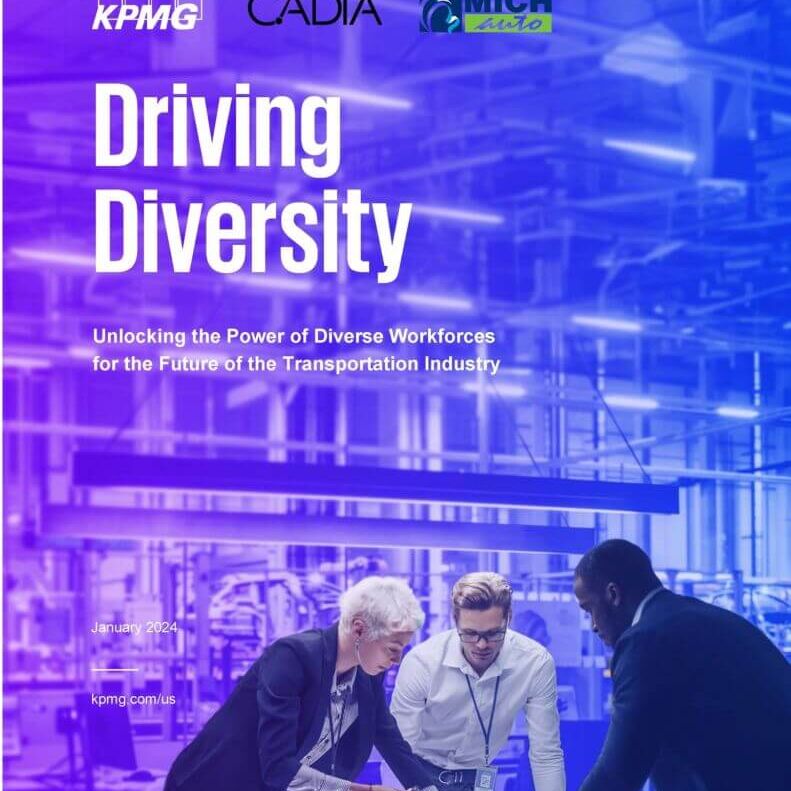CDIA Blogs: Thought Leadership
Creating an Equitable Workforce
Creating an equitable workforce demands a hard look at all parts of the employee lifecycle. It’s not solely about recruiting; but about thoughtful attention to…
Read MoreTop 10 Ways to Make DEI Work: Building a More Inclusive Future
At CADIA this year we have been hearing a lot about making DEI sustainable within organizations. Recently our founder and CEO, Cheryl Thompson gave a blog-worthy…
Read MoreCADIA Honors Pride Month 2023
As June approaches, we want to take a moment to celebrate Pride Month and express our unwavering support for the LGBTQ+ community. At CADIA, we…
Read MoreAutomotive DEI Industry Study

With support from the State of Michigan and MICHauto, CADIA conducted a comprehensive DEI Industry Study in 2023 to address diversity, equity, and inclusion challenges within the transportation sector. The study establishes key baseline data, provides benchmarks for DEI, and offers actionable recommendations on how organizations can effectively improve the DEI measures identified. It focuses primarily on transportation companies, including vehicle manufacturing, aftermarket and parts manufacturing, defense, auto-tech, automobility, and other related industries, reflecting a broad and inclusive scope. This research aims to drive measurable progress, foster innovation, and build a more equitable future for the workforce. KPMG, a global leader in professional services, served as the study’s research partner, ensuring the study’s data integrity and practical relevance.

Study Background Information
Available data paints a picture of a transportation industry that is minimally diverse in terms of its workforce in gender, race, ethnicity and other diversity dimensions.
Available anecdotal information indicates that attrition rates in the industry for women and minorities exceeds the rates of their majority counterparts.
However, even high-level data remains scarce. There is a significant a lack of specific and granular data to illustrate the current state of the industry talent pipeline, as well as what the industry could look like if it authentically embraced inclusive cultures and truly leveraged and valued diverse talent.
There are some who doubt the industry’s need for diversity. There is also the belief that there is no pipeline of robust talent because the underrepresented groups simply do not possess the needed technical expertise.
Without objective data, it is difficult to make the case for diversifying the industry if these perceptions are not challenged. Furthermore, it will be impossible to measure progress without baseline data.
Research Objective
Identify the current state of diversity, equity and inclusion in the transportation sector, publish a white paper or report with analysis and collect data to develop a baseline to:
- Establish goals for representation throughout all functional and technical areas and leadership levels based on an available and qualified workforce
- Develop critical key areas of focus to achieve inclusive talent and leadership development
- Measure against other industries/sectors
- Measure progress over time in the automotive industry
This DEI study directly aligns with CADIA’s mission and supports one of the four critical workstreams of MICHauto’s High-Tech Talent Strategy to strengthen Michigan’s global competitiveness in the automotive, mobility and technology industries.
The broader initiative is being funded by a grant through the State of Michigan’s Mobility Futures Initiative with the goal of growing high-tech talent in Michigan and bringing to life the Michigan Office of Future Mobility and Electrification’s MI Future Mobility Plan.




